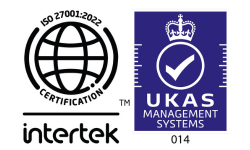Creating an excellent company culture will improve employee engagement, motivation and productivity while helping staff make meaningful personal and professional relationships.
So if you’re looking to improve your company culture, but don’t know where to start, our blog will explore 8 ways you can improve your work environment.
What does company culture mean?
Company culture refers to the ‘personality’ of a business and the day-to-day behaviours and beliefs of employees within a work environment. Company culture could be based around:
- How staff act and engage with the business
- Their personal goals and how they align with the companies
- How employees engage with each other at work
The benefits of having a good company culture
There are a multitude of benefits to having a good company culture, such as:
- Improving your team’s ability to be resilient to change – A great company culture can encourage staff to feel confident in the company’s values and their ability to adapt to change.
- Enhancing work quality – When a company culture isn’t particularly strong, the alignment to company values tends to be lost. However, having an excellent workplace culture can improve the quality of work and reduce the need to monitor staff’s tasks.
- Making the onboarding process more effective – Having a clear culture will make it easy to onboard people while explaining company values effectively, making it as simple as possible to understand company expectations.
- Attracting new talent – 98% of companies consider how employees fit into the culture as an important part of the hiring process, highlighting the importance of making your values clear to ensure you’re getting the very best applicants.
Provide opportunities for employees to connect
Whether you’re fully remote, hybrid or completely office-based it’s important to give employees the opportunity to connect with each other inside and outside of work, as it develops trust and improves company culture and staff retention.
You can implement this by hosting lunches or team dinners or holding remote virtual escape rooms. You could also provide chances to connect on a simpler level by asking questions about their life outside of work during one-to-ones or creating group chats for non-work topics like going for drinks after work. This can encourage staff to get to know each other and therefore improve workplace culture.
Give staff the chance to advance their careers
Research shows that the most common reason for people leaving a company is for career progression. Due to this, positive feedback, personal development plans and opportunities for meaningful career advancement can improve both employee retention and workplace culture.
Personal development plans are a great way to show staff that you’re taking their progression seriously. It can map out any steps that need to be taken to reach any milestones or goals. It can also help managers understand where staff are and if they need to undertake any training to achieve their career goals.
Prioritise transparency
Trusting managers is critical to employee satisfaction and fostering a better working environment. Prioritising top-down communication like keeping employees informed about the business through company-wide emails and updates can help staff feel valued and in the loop.
Creating an open-door policy can help people feel confident about sharing their thoughts and feelings with managers and feel as though any issues will be resolved. When working remotely it’s important to be as transparent as possible. You can do this by organising check-ins and virtual meetings for discussions and updates.
Recognise employees for their good work
It’s essential that you show your staff recognition to highlight that you value their contributions, the quality of their work and any feedback you may have heard from others.
You can introduce a shout-outs channel to your work messaging platform or hold anonymous questionnaires to see which people are continually being recognised for great work. Showcasing that you value your employee’s hard work and how they align with the business’s goals will boost satisfaction and therefore improve your workplace culture.
Provide flexibility
After the Covid-19 pandemic, more and more people are looking for greater flexibility at work and an improved work-life balance. This means flexible schedules and open holiday policies are in greater demand than before.
Knowing that their employers will accommodate for the time they need to take out due to general life issues can make employees feel appreciated and relieves stress, helping to improve retention and improve your work environment.
Give feedback
92% of employees want to get feedback more than once a year, meaning annual reviews aren’t enough and are often perceived as ineffective.
Companies should encourage managers to implement constructive criticism within one-to-ones or conversations with their team at work to help people act on them in a timely manner and resolve any issues or learn new skills.
You can also ask for feedback from your staff to see how overall business and management practices can be improved.
Encourage collaboration
Encouraging collaboration improves communication skills and helps different departments work together, reducing the chances of miscommunication. You can organise meetings in the office or online or introduce team lunches to inspire better communication, problem-solving and ideation between staff. This can improve company culture as you’re creating seamless processes.
How can payroll affect company culture?
Getting your payroll right is critical to keeping employees as they’ll be paid on time and correctly. You can use payroll software to ensure tasks are completed accurately through automation and data collection, making it easy for staff to access their own payroll data and helping those working within payroll or HR departments access the right information simply without any issues.
So if you’re looking to improve your company culture, get in touch with Payescape today to see how we can help you.














